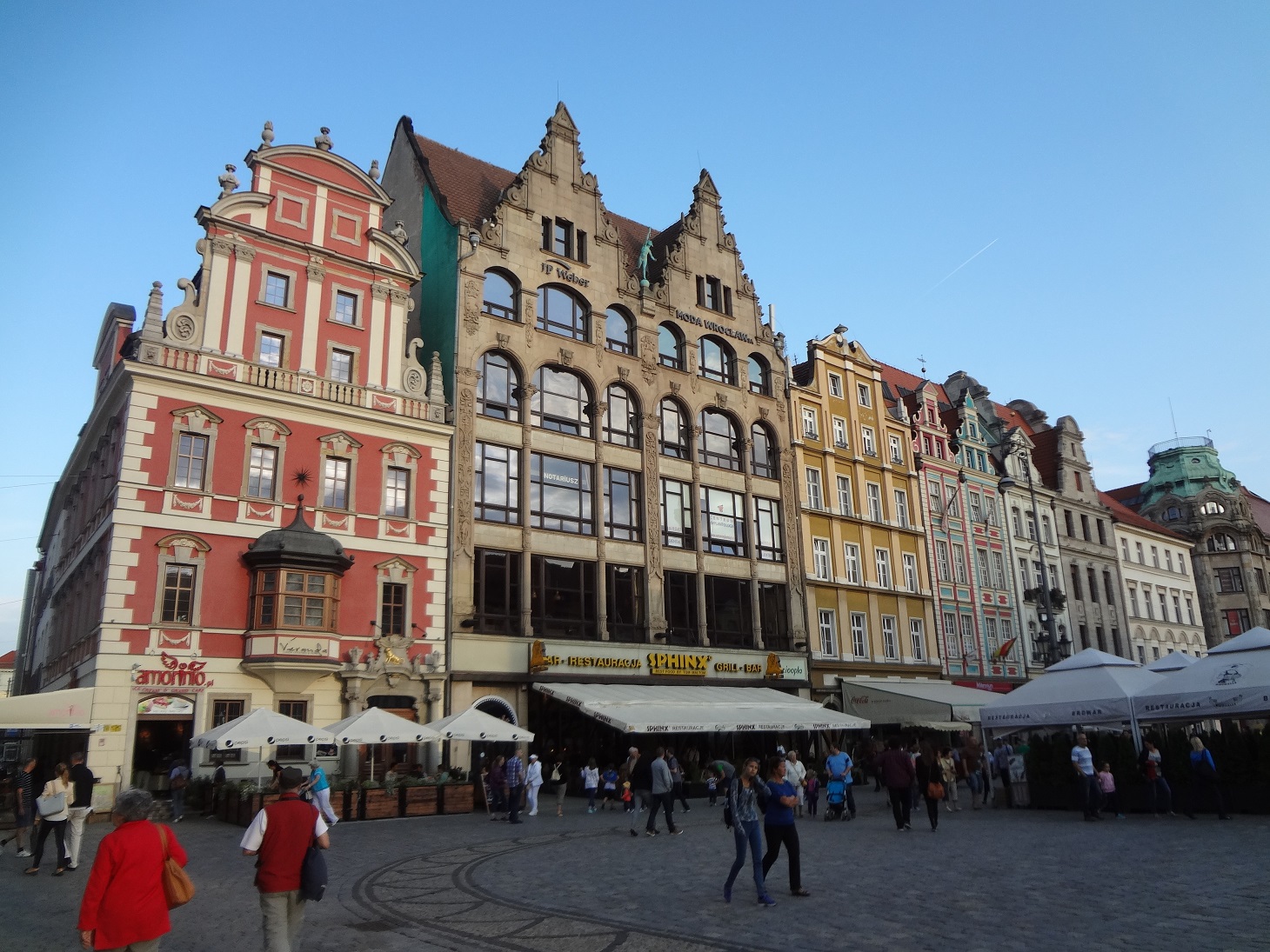 Polish is an impossible language - how can a word like Wroclaw end up being pronounced Vrotswaf?
Polish is an impossible language - how can a word like Wroclaw end up being pronounced Vrotswaf?Unpronounceable Wroclaw is an attractive city in Western Poland not too far from the German border. The old city, focused on two squares the Rynek and the Salt Market, attracts a large number of visitors especially the Town Hall, a masterpiece of late Gothic architecture.
 The tourists are mainly German, many of whom have connections to this once German city. Now thoroughly Polish, the city was known as Breslau prior to WWII. Before the war the Polish population of the city was less than one percent, while in the surrounding rural area Poles dominated. The city escaped destruction during most of the war until a disastrous two month siege by Russian troops in the dying months of the war - in fact Breslau didn't surrender until a few days before the German capitulation. By then the city was in ruins and most of the remaining 200,000 Germans left in the city (as many had left before the Russians arrived), all moving west by 1947.
The tourists are mainly German, many of whom have connections to this once German city. Now thoroughly Polish, the city was known as Breslau prior to WWII. Before the war the Polish population of the city was less than one percent, while in the surrounding rural area Poles dominated. The city escaped destruction during most of the war until a disastrous two month siege by Russian troops in the dying months of the war - in fact Breslau didn't surrender until a few days before the German capitulation. By then the city was in ruins and most of the remaining 200,000 Germans left in the city (as many had left before the Russians arrived), all moving west by 1947. Like other Polish cities, the city, now named Wroclaw, was lovingly rebuilt, while removing all traces of its German history including destroying the old German cemeteries.
Like other Polish cities, the city, now named Wroclaw, was lovingly rebuilt, while removing all traces of its German history including destroying the old German cemeteries.Isn't it amazing that Poland could rebuild so many of it's devastated cities despite losing 20% of the population, the economy ruined and the country occupied by the Soviets, when New Zealand finds it impossible to rebuild the Christchurch Cathedral?
Since Polish independence from the Soviets, Poland and Germany have been closely allied and very few traces of bitterness towards Germans lingers (the opposite can be said of Polish/Russian relations).
However, Angela Merkel's conciliatory approach to Russia over the Ukraine has deeply disturbed the Poles who now see their country almost on the front line with an aggressive Putin. This is despite Poland being a more important German trading partner than Russia.




No comments:
Post a Comment